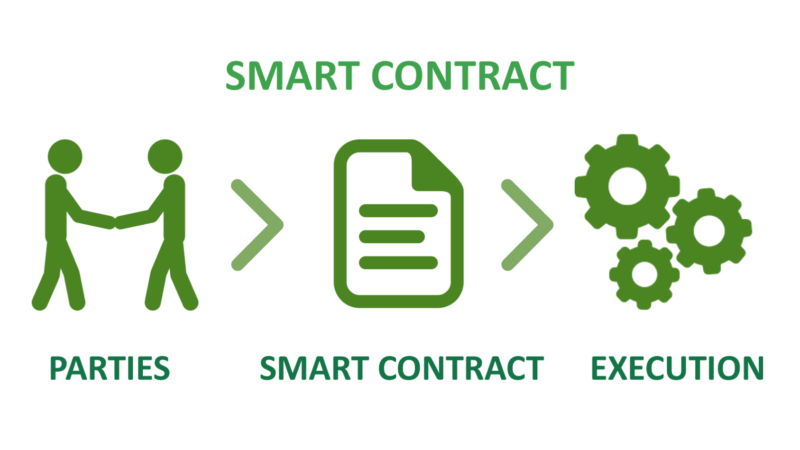Welcome to the fascinating world of cryptocurrencies and blockchain technology. If you’re new to this realm, you might have heard the term ‘smart contracts’ being thrown around. But what exactly are they, and how do they work? Let’s dive in and demystify this innovative concept.
What are Smart Contracts?
In simple terms, a smart contract is a self-executing contract with the terms of the agreement directly written into code. They are stored and replicated on the blockchain network, the same technology behind cryptocurrencies like Bitcoin and Ethereum.
The idea behind smart contracts is to eliminate the need for a trusted third party, such as a lawyer or notary, to facilitate and verify the execution of a contract. Instead, the contract automatically executes when predefined conditions are met.
How Do Smart Contracts Work?
Smart contracts operate using a simple ‘if/when…then’ logic. Here’s a basic breakdown of how they work:
- The contract is initiated when certain conditions are met (the ‘if/when’ part).
- The contract terms and rules are predefined and coded into the blockchain.
- Once the conditions are met, the contract automatically executes the action (the ‘then’ part).
- The blockchain network verifies and records the execution, ensuring transparency and traceability.
Advantages of Smart Contracts
Smart contracts offer several benefits over traditional contracts. Here are a few:
- Autonomy: They eliminate the need for intermediaries, giving users more control over their transactions.
- Trust and Security: Once deployed, smart contracts cannot be altered. The terms are transparent and encrypted on the blockchain, reducing the risk of fraud.
- Speed and Efficiency: They automate the execution process, making transactions faster and more efficient.
- Savings: By eliminating intermediaries, smart contracts can significantly reduce transaction costs.
Real-World Applications of Smart Contracts
Smart contracts have a wide range of applications, from financial services to supply chain management, real estate, and more. They can be used for anything from tracking the delivery of goods, to verifying identities, or even voting in elections.
As we move into 2024, the use and applications of smart contracts are expected to grow exponentially, revolutionizing various industries and the way we conduct transactions.
Conclusion
Smart contracts are the future of contractual agreements, offering a secure, autonomous, and efficient way to execute transactions. As blockchain technology continues to evolve, so too will the capabilities and applications of smart contracts. So, whether you’re a beginner or an expert in the crypto world, understanding smart contracts is crucial to staying ahead of the curve.


Greetings! Very useful advice in this particular article!
It’s the little changes that produce the most significant changes.
Thanks a lot for sharing!